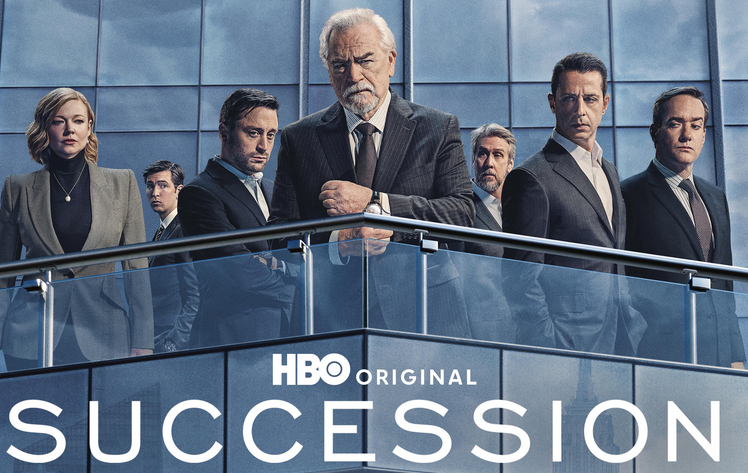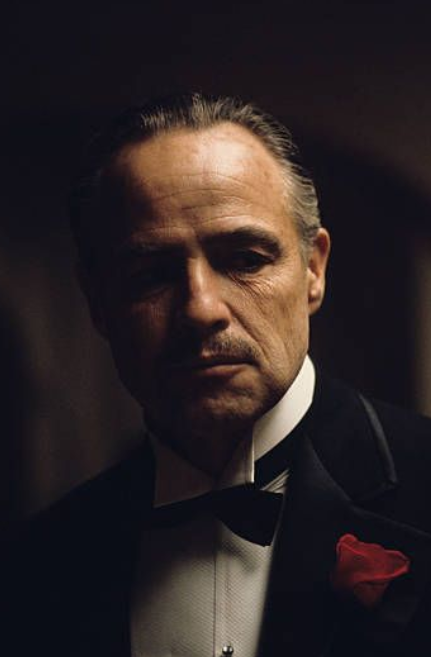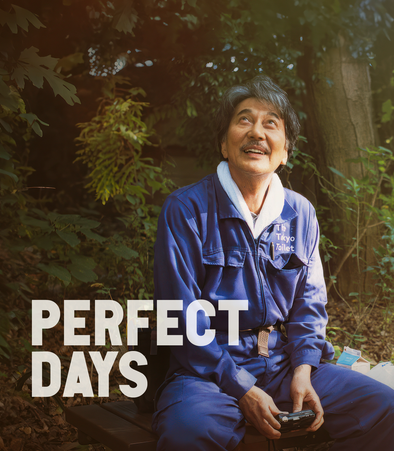Inside the World of Succession

I don’t really know where to start with Succession. It will suck you into their world and won't let go. Is it the cutthroat family drama? The brilliant writing? Or the performances so visceral, so layered, that you forget you’re watching a TV show and not peeking into the private lives of the disgustingly rich and morally bankrupt?
What I do know is that Succession is more than just a show about a dysfunctional family fighting for power. It’s a masterclass in storytelling, a tragic comedy about wealth, legacy, and the impossibility of escaping your family’s shadow. It’s about love that is twisted, transactional and conditional. And it’s about these deeply flawed characters who are so unlikable, yet so deeply human, that you can’t help but root for them even as you’re shaking your head at their decisions.
This isn’t just a story of "who gets the company?" but is a study of whether any of these people are capable of genuine human connections. Whether they can break free from their trauma, or they’re forever trapped in the toxic playground Logan built for them. So, where do I start? Maybe with this: Succession feels like stepping into a world that’s messy, tragic, hilarious, and all too real, where every character is both hero and villain of their own story.
CHARACTER ANALYSIS
The Tragedy of Logan Roy
Logan Roy stands as one of the television's most complex and compelling characters. A self-made titan whose strength and cruelty both stem from the same deep wells of childhood trauma. Born into poverty in Dundee, Scotland, Logan carried the scars of an abusive childhood that shaped him into both a survivor and a monster. Through Ewan's eulogy, we learn about their haunted early years, hiding from their violent uncle, Logan protecting his sister from assault. His sister Rose's death from polio haunted Logan throughout his life. These experiences convinced him that the world is a place of absolute ruthlessness where only the strongest survive.
Logan's love for his children manifests as something almost indistinguishable from cruelty. Take for instance, the iconic karaoke bar scene where he delivers the brutal line, "I love you, but you're not serious people." In seven words, we see everything that makes Logan complex, his genuine affection delivered like a punch to the gut. He's like a tiger trying to teach its cubs to hunt, genuinely confused as to why tearing them apart isn't making them stronger.
Logan's mastery of manipulation reveals itself in how he plays his children against each other. But it's more than simple cruelty, in his twisted way, he's testing them, preparing them for a world he sees as endlessly hostile. When he tells Kendall "You're not a killer," the disappointment in his voice is real. He wants his children to be strong enough to survive, but his version of strength looks suspiciously like becoming him.
Every terrible thing Logan does comes with a justification born from his past. Rising from poverty through sheer force of will, building an empire with his bare hands makes him believe that he's earned the right to be cruel. "I fucking won this," he tells Kendall, his success serving as his moral justification. If he's on top, he must be right.
His greatest tragedy lies in his inability to separate being a good businessman from being a good father. He treats his children like employees he needs to toughen up rather than humans who need love and support. Even his moments of tenderness come with strings attached, his affection usually preceding or following some spirit-crushing blow. The company becomes his identity so completely that giving up control would mean facing his own mortality and irrelevance. That's why he keeps changing his mind about successors that no one can run the company like him because no one else has been forged in the same fires.
Even after his death, Logan's influence continues to destroy his children. As Marcia perfectly observes, he built them a playground and convinced them it was the real world. He raised them to fight for his approval but never taught them how to be happy without it.
What makes Logan Roy such a masterfully written character is how each act of cruelty carries the weight of his own buried traumas, creating a monster we can't help but understand. Brian Cox brings stunning humanity to a monster, showing us glimpses of the scared boy inside the billionaire tyrant. Logan Roy isn't simply a bad person, he's what happens when trauma meets power, when love gets twisted by fear and when success becomes a justification for cruelty. His complexity makes him unforgettable, a man who loves his children but can only express through pain, who built an empire but couldn't build real relationships, who survived his past but never escaped it.
The real tragedy of Logan Roy is that he loved his children too much to let them go, but not enough to love them the way they needed. His love was like a cage he built to protect them, never realizing he was actually trapping them. Even after his death, they're still trying to break free from that cage of love, still trying to prove themselves worthy of a father who could never separate love from power.
The saddest part? If Logan hadn't loved his children at all, maybe they'd all have been better off. They could have simply hated him, taken their inheritance and moved on. But his love which is real, terrible and complicated, kept them all trapped in an endless cycle of trying to earn something he didn't know how to give. It's what makes Succession not just a story about power and money, but a deep human tragedy about how love, when twisted by fear and trauma, can destroy the very things we most want to protect.
The Complexity of Kendall Roy
Watching Kendall Roy is like watching someone try to fill an ocean with a teacup. He wants so badly to be his father that he loses himself completely. The show gives us a man who's brilliant in a crisis but falls apart the second he thinks he's winning. Think about the finale, the moment he puts his feet up on Logan's desk, we know he's doomed. That's pure Kendall, always reaching for something he can't hold onto. His story isn't just about addiction or daddy issues, it's about a man who spent his whole life training for a job he was never meant to have. Every time he tries to prove himself a "killer" like his father, he loses another piece of his soul.
Kendall Roy is a man haunted by the ghost of what he thinks he should be. Strong shows us this in every gesture - the way he holds himself in business meetings like he's wearing a suit made of his father's expectations, the slight tremor in his voice when he's trying to sound confident, the desperate look in his eyes when he's seeking approval. It's all there, this constant dance between who he is and who he's trying to be.
The finale brings it all full circle. When Kendall finally gets what he's always wanted, that chair, that power. The way he puts his feet up on that desk isn't arrogance, it's a little boy playing dress-up in his father's clothes, trying so hard to look natural that it becomes completely unnatural.
Jeremy Strong's commitment to this role is legendary. He's known for staying in the character. Strong lives Kendall's pain so completely that it's almost uncomfortable to watch. That scene where he breaks down after the waiter's death is pure devastation. And it shows. Every time Kendall falls and god, we feel it in our gut. When he's high, when he's low, when he's trying to be his father or trying to destroy his father, Strong makes every moment feel real and raw.
Kendall Roy in Strong's hands, becomes every person who's ever tried to live up to impossible expectations and failed. He's every son who's ever tried to please an unpleasable father, every person who's confused success with self-worth. When he finally loses everything in the end, it feels inevitable not because he wasn't smart enough or strong enough, but because he was fighting a battle he could never win i.e., trying to be someone he clearly wasn't.
That's what makes Strong's portrayal so devastating. He shows us the tragic beauty of his endless trying. Even when we know he's going to fail, even when we want to look away, we can't. Because in Kendall's desperate need to be worthy, we see something painfully familiar - the universal human struggle to just be enough!
Roman Roy's Vulnerability Beneath the Sarcasm
Kieran Culkin turns what could have been just the "funny one" into perhaps the show's most emotionally honest character. It was intriguing to watch how Kieran Culkin peels back those layers season by season. Behind every sarcastic comment is a kid desperate for his father's approval. He's the only Roy kid who never really betrays anyone, which makes him both the strongest and weakest link. By the final season, when he's standing in that Italian church grieving his father, we see the real Roman, someone who actually loved Logan instead of just wanting what Logan had.
What makes Roman unique among the Roy children is his lack of pretense. Unlike Kendall trying to be a killer or Shiv playing master strategist, Roman's need for approval is naked, almost childlike. Culkin shows us this vulnerability in tiny moments, a slight tremor in his voice when standing up to Logan, the way he physically shrinks when criticized, how his jokes get more frantic when he's scared.
By the final season, when Roman stands in that church after Logan's death, Culkin gives us something extraordinary. The jokes fall away, and we see pure grief. Not for the company, not for power, but for his dad. It's raw, real and painful. This isn't someone mourning a titan of industry, this is a little boy who, despite everything, just misses his father.
What Culkin does with Roman is remarkable, he shows us how humor can be both a weapon and a shield, how someone can be simultaneously the weakest and strongest person in the room, and how real love can exist even in the most damaged relationships.
Shiv Roy: The Daughter Who Could Never Decide
Shiv Roy is what happens when brilliant ambition meets crippling indecision. Sarah Snook shows us a woman fighting to prove herself in a man's world while using all the toxic tools her father taught her. Watch how she handles the cruise line scandal, promising a victim support, then crushing her to protect the company. That's Shiv's tragedy, becoming everything she claimed to hate. She is someone who plays chess while her brothers play checkers, but she keeps forgetting which game she actually wants to win.
The Shiv-Tom Dynamic
Their dynamic is a masterclass in power imbalance. Shiv wields her family name and position like a weapon, while Tom uses his devotion as both shield and guilt trip. Watch their therapy session in the final season, when Tom asks Shiv if she loves him, and she can't even say the words without turning it into a joke. Sarah Snook and Matthew Macfadyen make this scene devastating because we see both sides. Shiv's inability to be emotionally honest, and Tom's desperate need for something she can't give.
The cruel moments pile up. Shiv telling Tom he's not good enough for her. Tom comparing their relationship to being in a prison camp. Every intimate moment between them feels like a negotiation rather than genuine connection. "I don't love you, but I do love you" might be the most honest and most brutal thing Shiv ever says to him.
By the final season, their marriage becomes a perfect mirror of the power games at the heart of Succession. When Tom betrays Shiv for the CEO position, it feels both shocking and inevitable. All those little moments of humiliation, all those times Shiv treated Tom as beneath her, led to this.
That final scene between them, with Shiv's hand on top of Tom's, not quite touching is the perfect image for their entire relationship. Two people forever caught between intimacy and warfare, never quite able to connect, but never able to let go either. Their marriage is a perfect example of how power corrupts even the possibility of love.
The Evolution of Tom and Greg
If Succession is a modern Shakespeare play, Tom and Greg are like the comic relief that somehow end up ruling the kingdom. Their relationship starts as workplace comedy - the awkward boss and his even more awkward assistant. But watch how it evolves into something darker and more complex. From "We hear for thee" to "Do you want to make a deal with the devil?", they become partners in moral corruption. Matthew Macfadyen and Nicholas Braun turn what could have been just funny scenes into a masterclass in how power changes people. Greg goes from bumbling cousin to baby Machiavelli, while Tom transforms from Shiv's puppy into someone who can betray his own wife to win.
The Genius of Succession's Script and Technical Excellence
The show's editing is remarkably precise in its pacing. It knows exactly when to linger on a devastating reaction shot and when to cut rapidly during moments of chaos. The editors masterfully weave together multiple narrative threads, often using sharp cuts between parallel scenes to highlight thematic connections or ironies.
The OST of Succession, composed by Nicholas Britell, is nothing short of extraordinary. Each piece captures the tension, grandeur, and underlying melancholy of the Roy family’s world. The music shifts seamlessly between grandeur and intimacy, making boardroom scenes feel like epic battles and family dinners like Greek tragedy.
Every actor in this show doesn't just play their part, they become their character. The supporting cast like J. Smith Cameron as Gerri, Alan Ruck as Connor and others bring their A-game to every single scene.
The brilliance of the show's writing lies in how it uses humor to deliver devastating emotional truths. Take that scene where Roman tells his father, "I can do it, dad. I'm smart, I'm good." It's delivered like a joke, but in those simple words, we hear years of desperate need for validation. Or when Kendall says, "I'm better than you, dad," moments before his final betrayal, it's both a son's declaration of independence and a child's plea for attention.
The show's insults are very clever. When Roman calls Kendall "the first pancake" (the one you throw away), it is hilarious but also reveals how deeply these siblings understand each other's wounds. Or when Tom tells Greg, "You can't make a Tomlette without breaking some Greggs," it is a funny wordplay that also perfectly captures their twisted mentor-mentee relationship.
The writing becomes more complex and layered as the show progresses. What makes Succession's writing truly special is how it uses language as both weapon and wound. These characters hurt each other because they're hurt, love each other because they're lonely, and can never quite say what they mean because they were raised to see vulnerability as weakness. Every line of dialogue is like an onion, peel it back and you'll find layers of meaning, pain, and history inside.
Final Thoughts
Honestly, to me, the show had a perfect climax. I think the kids can start to recover from their daddy issues now that the company is no longer central to their lives. If you thought this was going to have a happy ending, you haven't been paying attention. A good tragedy should feel inevitable, and this show delivers just that.
The show's genius lies in its ability to make viewers empathize with objectively terrible people. We watch them destroy themselves and each other, and somehow we can't look away. Maybe because underneath all the billions and betrayals, we see something familiar - family, ambition, the need to prove ourselves, and the price we pay for power.
At its core, Succession is a warning about what happens when we let power become more important than love, when we confuse winning with being worthy, and when we can't break free from the patterns that shaped us. The Roy children are finally free of their father's shadow, but they'll never be free of him. And isn't that just the most painful truth of all?
Personal Takeaway
Succession isn't for everyone but it's definitely for me. After finishing it, I found myself wandering around my home muttering “fuck off” for no reason at all.
What struck me most was how the show explores the consequences of being shaped by your family. The Roy siblings are puppets of their father’s love, which was twisted, conditional, and often cruel. In their desperate attempts to break free, they inevitably mirrored his worst traits, proving that sometimes the biggest battles are the ones we fight within ourselves.
After finishing the series, I couldn’t stop thinking about how much we, like the Roys, define ourselves through external measures like success, approval, achievements and how much of life is spent trying to be "enough."
Succession has left me with the haunting realization that breaking free from toxic cycles isn’t easy but is the only way to truly live.


Comments ()